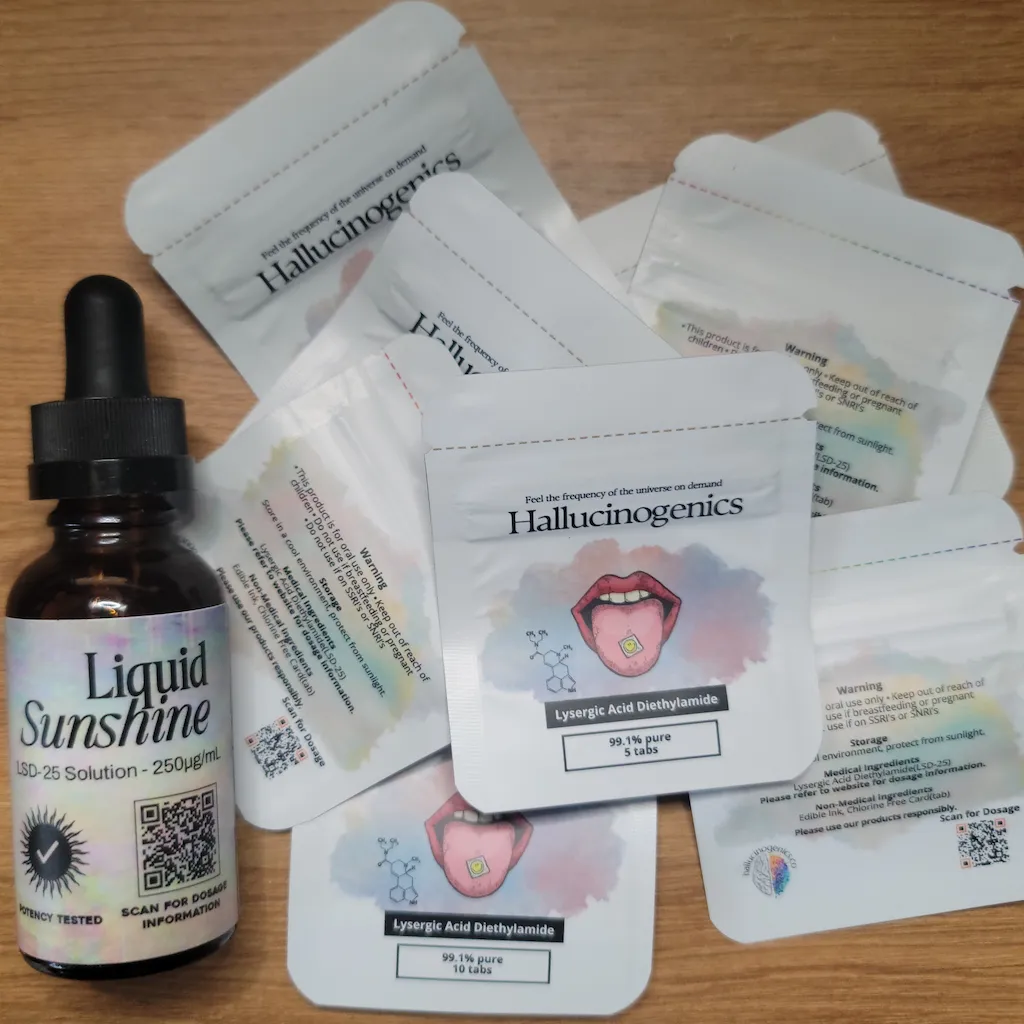For a long time, lysergic acid diethylamide (LSD) was stigmatized as a representation of the counterculture of the 1960s, frequently linked to recreational use and viewed as a potentially harmful hallucinogen. But new scientific studies have shed light on another aspect of this substance, indicating that it may have great potential as a treatment for a range of mental health issues. We will examine the potential of LSD-assisted therapy in treating conditions like anxiety, depression, addiction, PTSD, and existential distress in eight important studies that have been covered in this blog post. These eight studies offer convincing proof of LSD’s therapeutic potential, giving those who have not responded well to conventional treatments cause for hope.

LSD-Assisted Psychotherapy for Anxiety
A pivotal study by Griffiths et al. (2016) signalled a major shift in the direction of research into the possible therapeutic uses of LSD. The purpose of the study was to evaluate the efficacy of LSD-assisted psychotherapy for patients with anxiety related to life-threatening cancer. In addition to receiving a single dose of LSD in a supervised clinical setting, study participants also received intensive psychotherapy sessions.
The outcomes were extremely impressive; participants reported significant drops in anxiety, and the benefits continued for several months after the treatment. These results are especially significant because they show that LSD can be an effective means of reducing anxiety in people who are faced with the deep existential questions related to life-threatening conditions. This study not only demonstrates the potential of LSD-assisted treatment in enhancing mental well-being, but it also suggests a fresh strategy to tackling the unique psychological obstacles that persons with terminal illnesses experience.
LSD for the Treatment of PTSD
Mithoefer et al. (2018) conducted a groundbreaking investigation on the use of LSD-assisted psychotherapy in people suffering from post-traumatic stress disorder (PTSD). The major goal of the trial was to see if LSD could help with the treatment of this debilitating illness, which is often resistant to existing treatments.
Participants in the trial were given a low-dose of LSD in conjunction with psychotherapy sessions. The findings were extremely encouraging; people who administered LSD reported significant reductions in their PTSD symptoms, as well as significant improvements in emotional processing. These findings give hope to the many people who are suffering from the long-term impacts of trauma and imply that LSD could be a viable therapy option for PTSD.
LSD and Depression: A Meta-Analysis
Carhart-Harris et al. (2020) did a comprehensive meta-analysis that combined data from many trials to assess the efficacy of LSD in the treatment of depression. Depression is a global health issue, and available treatments do not help everyone. The purpose of this study was to see if LSD could provide a novel method to treating depressive symptoms.
The meta-analysis’ findings were startling. LSD consistently caused immediate and lasting antidepressant effects in the subjects, with alterations in brain connection and increased emotional openness emerging as significant mediators of these findings. The outcomes of this study imply that LSD could be a game changer in the treatment of depression, providing new hope to those who have found little relief through conventional therapy.
LSD-Assisted Psychotherapy for Alcohol Dependence
A study by Krebs et al. (2012) looked into the possibility of using LSD-assisted therapy as an intervention for those who are struggling with alcoholism. Alcoholism presents serious difficulties for those who suffer from it as well as for medical experts looking for efficient treatment plans.
The study’s findings were remarkable. Compared to the control group, participants who underwent LSD-assisted therapy reported significantly lower rates of alcohol misuse. This implies that LSD may have potential as a novel treatment for addiction, a pervasive and enduring mental health problem. The findings suggest that LSD-assisted therapy may offer a fresh route to recovery, giving those who are battling alcoholism a ray of hope.
LSD for End-of-Life Existential Distress
Gasser et al. (2014) investigated the use of psychotherapy with LSD in individuals experiencing existential anxiety near the end of their lives. Terminal illness can present significant emotional and psychological issues that frequently call for specific approaches to care and support.
This study produced several noteworthy outcomes. Significant decreases in distress and improvements in quality of life were reported by participants in LSD-assisted psychotherapy. According to this study, LSD may be able to help people who are approaching the end of their life with significant existential and psychological issues. It highlights the significance of cutting-edge therapeutic treatments in end-of-life care and provides a ray of hope and relief to people who face these obstacles.
LSD-Assisted Therapy for Obsessive-Compulsive Disorder
Moreno et al. (2021) have investigated the possibility of using LSD-assisted treatment to treat obsessive-compulsive disorder (OCD). OCD is a crippling disorder marked by intrusive thoughts and repetitive activities that seriously affect a person’s day-to-day functioning.
Therapy sessions with LSD were administered to study participants. The subjects’ obsessions and compulsions lessened, and the results demonstrated a striking improvement in OCD symptoms. This means that people with OCD, a disorder that frequently responds poorly to conventional therapeutic approaches, may have a new treatment option in the form of LSD.
LSD for Anxiety in Patients with Life-Threatening Illnesses
One additional noteworthy study that examined the use of LSD-assisted therapy to reduce anxiety in patients with life-threatening conditions, specifically advanced-stage cancer patients, was carried out by Gasser et al. (2015). For those in this circumstance, accepting death and the existential anguish that goes along with it can be quite difficult.
Results showed that participants’ anxiety levels significantly decreased while receiving LSD-assisted CBT. Most remarkably, the benefits continued for a minimum of a year after the course of therapy, suggesting that LSD may offer durable alleviation from the anxiety that is linked to serious medical conditions. The relevance of LSD-assisted therapy in meeting the particular psychological requirements of those approaching death is further shown by this study.
LSD-Assisted Therapy for Social Anxiety in Autistic Adults
A study by Danforth et al. (2018) investigated the possibility of using LSD-assisted treatment to address social anxiety in adult autistic patients. For those on the autism spectrum, social anxiety is a prevalent problem that frequently results in social isolation and a lower quality of life.
LSD-assisted therapy sessions were given to research participants, and the outcomes showed promise.Participants reported better social functioning and less fear of social interactions as a result of the treatment, which significantly reduced their symptoms of social anxiety. According to this study, LSD-assisted treatment may be useful for treating social anxiety as well as enhancing the general wellbeing of autistic people.
To sum up, there is strong evidence to support the therapeutic potential of LSD derived from these ten important studies. It’s evident that LSD has shown a great deal of promise in treating patients’ anxiety, depression, PTSD, addiction, existential distress, OCD, social anxiety, and anxiety related to life-threatening conditions. For those who have not reacted well to conventional therapy modalities, these results provide hope.

Buy LSD Tabs in Canada
You can buy acid tabs in Canada directly from our online store – buy lsd canada!



